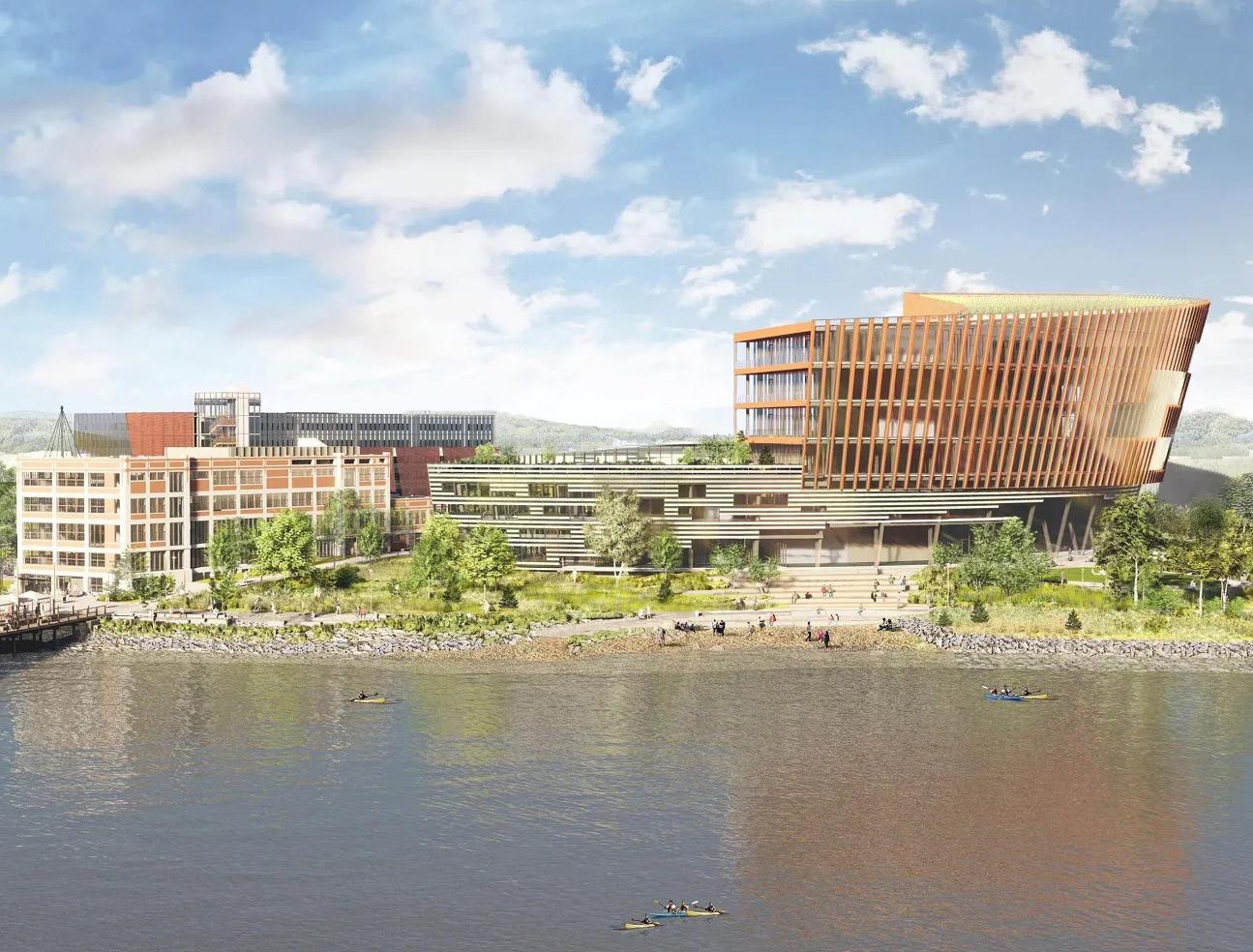Living Our Impact
Driving talent
&


Driving talent

Five years ago, Northeastern University launched a new addition to its now 13-campus global university system: the Roux Institute in Portland, Maine. The institute — founded in partnership and with the generous philanthropic support of David and Barbara Roux and the Harold Alfond Foundation — is a bold new model for learning, research, and entrepreneurship. Differentiated and fueled by dynamic partnerships with more than 200 industry, government, education, and community organizations, the institute’s mission is to establish Maine and the surrounding region as a talent and innovation center within the global technology and life sciences economies.
Now in its fifth year, this extraordinary partnership among Northeastern University, the Roux family, and the Harold Alfond Foundation has strengthened and enhanced the lives of those it serves, creating exciting impact, and building new models for the future of higher education and regional economic development. Together with our partners, we are delivering on Northeastern’s promise to erase the boundaries between the real world and the university by deploying experiential learning and breakthrough research within local contexts. We’re doing this by customizing learning programs and research initiatives to meet the needs of our partners, integrating classroom learning with professional data and experiences, and supporting the launch and development of innovative startup companies.
This “Living Our Impact” report is a snapshot of the Roux Institute’s progress and impact from inception to date. It is designed to be a living document and will be updated often to share our evolution and growth. The report illustrates Northeastern University’s important and diverse work in human terms, demonstrating our impact by featuring the many people, communities, and partners we serve.

Founded in 1898, Northeastern University is a global research university that centers education and research on understanding and solving widespread, global problems. As the leader in experiential learning, our education and research programs drive real-world impact and erase the boundaries separating higher education from the rest of the world.
When Northeastern partnered with David and Barbara Roux and the Harold Alfond Foundation in 2020 to create the Roux Institute, the partners sought to bring this unique learning model to Maine with a mission to make the state a leader in AI, data science, advanced life sciences, and hightech, high-growth fields.
Leveraging Northeastern University’s vast network of experts and resources from across the globe, the Roux Institute establishes Portland, Maine, as a major innovation hub, one specifically focused on bolstering Maine’s economy and helping propel Maine’s legacy industries into a tech-forward, sustainable, and prosperous future.
Our goal: To be the indispensable university for partners, learners, and innovators who are making an impact on the world and in the communities where they live.
The Roux Institute aims to create economic prosperity and opportunity through
innovative research and educational programs.
The Alfond Foundation, combined with the
founding
support of Barb and Dave Roux, will allow us to set our sights even higher and make our impact even more profound — today, tomorrow, and for generations to come.” “
JOSEPH E. AOUN President of Northeastern University
Nandita Gurwara, who graduated with a master’s in computer science, completed her co-op in Portland, ME with New England Marine Monitoring. The startup, which uses AI-driven technology to help local fisheries monitor the ocean, is a participant of one of the Roux’s founder residency programs.

DAVID AND BARBARA ROUX’S VISION “
Our vision is to train the next generation of talent with the skills necessary to fully participate in the innovation economy. This will attract growing, dynamic companies to Maine to work with the rare talent that we’re creating.”

407 graduates and 722 students enrolled

$34.8M in external grant funding 4,584 partner employees and community members trained
190 team members From inception to date

95 startups
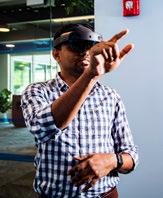
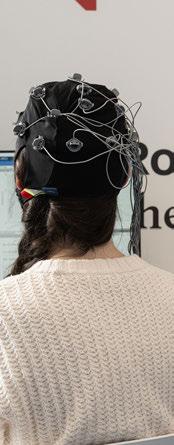
Northeastern’s distinctive approach to education, research, and innovation is developing unique talent, unlocking new discoveries, and fueling Maine’s startup ecosystem.
The Roux Institute team asks what our communities, businesses, and employers need. And then by listening, working, and learning together in partnership, the team produces. For the Harold Alfond Foundation, the Northeastern model and the work of the Roux Institute today has all of the promising elements so needed by Maine and our nation.”
GREG POWELL Chairman of the


Northeastern’s Alfond Scholars Initiative provides generous, needbased scholarships and stipends to enable co-operative education and post-doctoral talent development programs.

Partnerships are the key to translating our efforts into impact. We aspire to be invaluable to the many partners we serve. Through customized talent development programs, coupled with specific AI solutions, we collaborate with our partners to develop their workforces, ensuring their skills match the demand of a hightech and AI-driven economy.
Together, we are strengthening Maine’s economy and fueling important regional growth through a shared focus on talent development, acquisition, retention, and innovation. We provide our partners with the talent anD technology solutions they need to thrive in a world driven by data, artificial intelligence, and technological transformation.
Partners of the Roux Institute rely upon Northeastern University’s vast resources and expertise, including 45,000+ students, talented faculty and researchers, and experiential learning methods to spark innovation and transform organizations. That collaboration also enables partners to take on the challenges of Maine’s communities, creating innovative solutions that strengthen the entire region.
By integrating community projects into our graduatelevel curriculum and engaging with students, partners, and communities across Maine, the Roux Institute is providing resources and expertise that drive people and their communities forward.
INDUSTRY PARTNERSHIP SPOTLIGHT

Fantastic. Absolutely fantastic,” said Steve Smith, President and CEO of L.L.Bean. “This has been a truly worthwhile investment.” “
Steve was reacting to a presentation he had just witnessed that was the culmination of a Northeastern University capstone course specifically designed to address a business challenge that L.L.Bean was facing. The findings were presented by a cohort of eight Northeastern students and five L.L.Bean employees. This unique format is one of the outputs of Northeastern’s learning model, referred to as an Experiential Network, or XN, course which embeds industrypartner employees within a graduate course.
The class was part of a capstone immersion, which brought together L.L.Bean employees and Roux graduate students to help solve a business challenge. The results gave L.L.Bean a framework to take back to their teams and deploy in various ways to dramatically improve sales forecasting, inventory management, marketing, and customer service.



Our relationship with the Roux Institute is grounded in a shared commitment to the development and success of our workforce and the communities we serve,” said Bob Montgomery-Rice, Bangor Savings Bank President and CEO. “By expanding the Bank’s capabilities, we are ensuring that our You Matter More promise remains at the heart of everything we do. Providing employee education focused on data fluency and the responsible and ethical use of AI enables us to continue delivering the exceptional experience our customers across Northern New England expect.”
Bangor Savings Bank understands their customers look to them to be trusted advisors who provide exceptional and personalized customer experiences. That’s why they’re partnering with the Roux Institute to further enhance customer connections through data fluency and equip
Bangor Savings Bank’s workforce with critical skills for a future where data and the responsible use of artificial intelligence (AI) play an increasingly
important role. As part of this initiative, they’re working with the Roux Institute’s Experiential AI (EAI) Solutions Hub to build a unique recommendation engine that helps them better serve their customers. The teams are collaborating to conduct data analysis, explore Bangor Savings Bank customers’ needs, and bring together focus groups to collect qualitative data.
Northeastern University’s experiential learning model puts our students, faculty, and staff in collaboration with K-12 schools, community organizations, municipal governments, rural healthcare systems, and nonprofits. This model allows graduate students to learn by creating solutions to real-world challenges, while simultaneously helping support our communities.
Sample projects include the following:


Data analysis for the Dempsey Center to help guide growth strategy around providing integrative cancer support to the approximately 10,000 Mainers diagnosed with cancer each year
A project management plan for St. George Municipal School Unit, a small, rural school district in coastal Maine, to design a Makerspace Building that has programs for students (PreK-12) and adults

Proposed strategies to enhance call response by achieving faster liftoff times for LifeFlight of Maine, the state’s only air ambulance service, caring for more than 2,500 patients annually from across Maine

A web application prototype for ReMo, an app that helps students improve their reading ability by tracking their progress towards reading goals

L: Graduate Yuan Kuang, MS Computer Science
R: Graduate Yiqian Huang, MS Computer Science

Preparing the talent of tomorrow
Northeastern University has ushered in a new era of higher education, one that strongly contextualizes learning with realworld challenges and data. At the Roux Institute, we put a strong focus on extending education outside the classroom and into the Maine community. We do this through the creation of custom courses that address and solve real issues in our community and economy, the training and upskilling of Maine’s workforce, embedding our students within our industry partners, and tech-forward learning programs that keep our graduates in demand in a modern economy.
Experiential learning provides Northeastern students the ability to learn valuable skills that they can immediately apply to their careers. For Bar Harbor native Abby Bridgers, this was essential. As a graduate student earning her master’s degree in analytics at the Roux Institute, she discovered a career that combines her passion for healthcare and analytics. In 2023, Bridgers secured a co-op with the Maine Department of Health and Human Services (DHHS), where she cleaned and analyzed mental health and substance use disorder data, creating dashboards and reports and crafting presentations for program and policy leaders. DHHS was able to secure funding to turn Bridgers’ co-op position into a permanent, full-time job, which allows her to continue to do work she sees as hugely important. “A crisis can happen at any time,” Bridgers said. “Therefore, it’s doubly important that our system is resilient and responsive to people in need, at the time and place they need it.”


To find a graduate program at an R1 research institution, Courtney assumed she’d have to leave Maine. Instead, she began her master’s in analytics to pursue her ideal job: one that combined her passion for mission-based work with the storytelling and strategic visualization capabilities of data analytics. She secured a job in the philanthropy arm of Maine Medical Center.

Landing at the Roux Institute wasn’t just Collins’ first time in Maine, it was his first time outside of Africa. After earning his engineering undergraduate degree at All Nations University in Ghana, he took a leap and began his master’s journey at the Roux Institute. He worked closely with Director of Engineering Research, Jack Lesko, in his research lab and now hopes to transfer those skills to a career in embedded software engineering.

After graduating from McGill University, Griffin returned home to Maine, eager to pursue a graduate degree in biotechnology. Two years later, Griffin has not only earned a master’s degree in bioinformatics from the Roux Institute, but he is also one of the first students to enroll in the Roux’s new interdisciplinary PhD program, specializing in computational medicine.
We are already incorporating the data analysis and dashboards the Roux students produced into our operations decisions. For many LifeFlight patients, every minute matters, and these insights from the Roux students will help save lives here in Maine.”
Our master’s, PhD, and graduate certificate programs are focused on high-tech fields that will prepare our students for thriving careers in Maine. With a focus on AI and machine learning, biotechnology, computer and data science, and more, the Roux Institute is producing high-tech talent that will help usher Maine’s industries into a new era of growth.

My co-op experience with MaineHealth’s telehealth team was truly valuable. It allowed me to delve into the healthcare field and learn how technology can make a difference. While the team focuses on delivering the best telehealth services, there are people being left behind due to their lack of access to broadband internet, devices, or the necessary digital skills. I’m grateful for the opportunity to make a meaningful impact on our community’s health.”
QUYNH (QUINN) NGUYEN
Graduate, MS Project Management
1,500+ 914
students have participated in co-ops and experiential projects
129 587
For over 125 years, Northeastern University has been a leader in cooperative education, which alternates semesters of academic study with full-time work with an industry partner. The Roux Institute deploys this model by placing graduate students at Maine’s leading businesses, allowing students to make valuable industry connections, explore careers, and acquire and utilize skills and knowledge in a real-world environment.
Experiential Projects
Full-time Jobs
Co-ops
Rural Health Gap Year Participants
1,129 graduate students served
47% 20+ 53% of graduates are women countries represented of students call Maine home
With nearly 300,000 global alumni, including 407 graduates from the Roux Institute and 5,000 alumni and parents in Maine, the Northeastern Global Network is an expansive lifelong opportunity. As Northeastern alumni explore career opportunities, further their education, engage with any of Northeastern’s 13 campuses, and venture throughout the world, they are supported by an ever growing community of global alumni. The shared Northeastern experience fuels the resources and connections supporting each graduate’s lifelong journey.
Among the most recent cohort of 175 graduates (June 2024), 88% are already employed or pursuing PhDs; 73% are employed in Maine. Eighty percent of our first two cohorts of graduates have remained in Maine.

Cultivating world-class applied research in
Every learner, every partner, and every entrepreneur at the Roux Institute benefits from the support of our world-class research domains, institutes, and centers. Accomplished researchers at the Roux Institute are making new discoveries and implementing cutting-edge solutions and technologies right here in our Maine communities

Northeastern University was recently awarded a $17.5 million grant from the Center for Disease Control to build a forecasting center to model infectious disease outbreaks in the Northeast. Northeastern was tapped for the grant partly because of the Roux Institute’s close partnerships with MaineHealth and Northern Light Health, two Maine healthcare providers that have valuable data and deep insight into rural health trends. $1 million of the CDC grant will go directly to MaineHealth and Northern Light Health, who will provide Roux researchers with data, clinical expertise, and insight into their operations that will help Northeastern build a computational model to predict and plan for infectious disease. The project will strengthen outbreak response in rural communities, directly protecting Maine’s most vulnerable and rural populations.
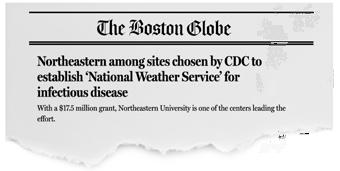



The Roux Institute houses multipurpose lab space that supports our teams working in engineering, human-data interaction, machine learning, robotics, and more.
Turning data into direction. Advancing technology. Solving industry challenges. Roux Institute researchers work together across disciplines to drive progress for companies and communities in Maine and beyond. Through the Roux’s dedicated research team and our growing community of co-located institutes and centers, we bring subject matter expertise to our projects and partners.
Research Domains and Co-located Institutes
Engineering
Computational Medicine
Human-Data Interaction
The Institute for Experiential AI
Network Science Institute
Institute for Experiential Robotics
Kostas Research Institute









Northeastern University’s research centers and institutes are drawing top talent from all over the world. Experts in AI, engineering, computer science, and life sciences are conducting groundbreaking research right here in Portland, Maine.
































The Roux Institute recognizes that to create a truly innovative economy in Maine, a healthy entrepreneurial ecosystem is essential. To cultivate new innovation and bring highgrowth, in-demand careers to Maine, the Roux Institute uses its network of expertise, research capabilities, and resources to incubate and accelerate early-stage startups focused on strengthening our communities, economy, and environment with sustainable tech-based solutions. There will continue to be a focus on building a tech-based, big-idea hub, providing funding and guidance in business growth, and focusing on AI for a healthier, more prosperous Maine.
Grace St. George addresses a crowd of founders, investors, and community members at the 2024 Founder Residency Venture Showcase.
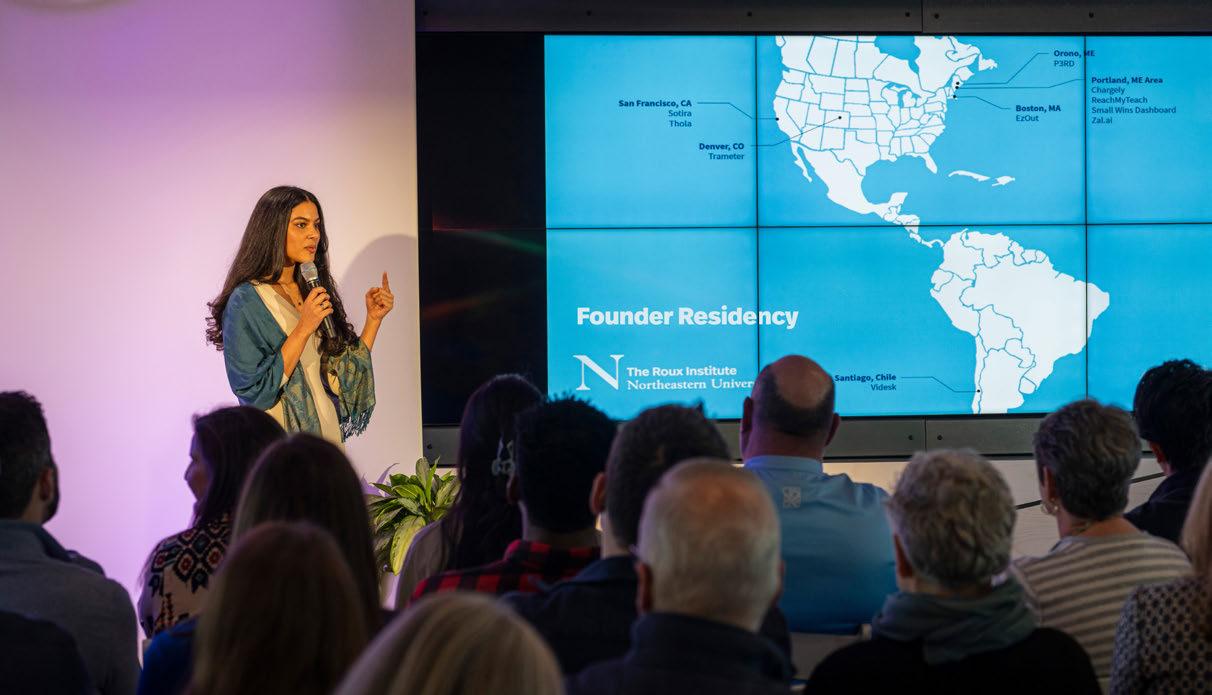
$106M in investment capital raised

126 Maine jobs created

1,661 entrepreneurship education program participants
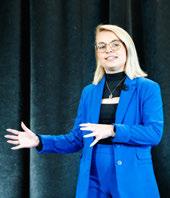
61% of companies plan to continue significant operations in Maine
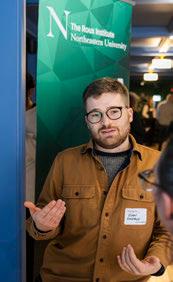
80% of companies led by a founder who self-identifies as underrepresented

When Melissa LaCasse joined a Roux Institute Founder Residency cohort in January of 2022, her startup, Tanbark, had already developed a prototype of molded-fiber packaging that was a sustainable and earth-friendly solution to rigid, single-use plastics. With the backing of the Roux Institute’s programming and resources, Tanbark secured the funding and strong partnership needed to officially launch and expand their venture. Today, they have several contracts with local Maine businesses and have opened a Maine-based manufacturing facility, helping drive Maine’s legacy pulp and paper industry into a new era of innovation.
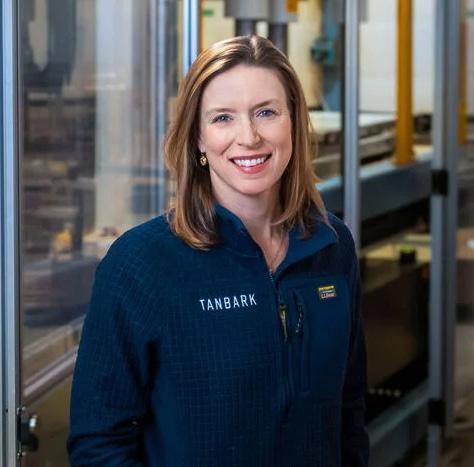
Tanbark’s journey through the Roux Institute’s Founder Residency Program led to important connections and milestones.
Melissa LaCasse joins the Founder Residency with a big idea and a small operation she was looking to scale.
LaCasse gets an introduction to Maine Technology Institute. MTI agrees to fund Tanbark’s pilot with Luke’s Lobster.
Through the residency’s programming and connections to Roux industry partners, LaCasse meets the CEO of Luke’s Lobster, which leads to a product pilot agreement.
LaCasse partners with Jack Lesko, the director of engineering research at the Roux Institute.
The two work together on product improvements in preparation for the product pilot.
Tanbark opens a manufacturing facility in Saco, Maine. President Joe Biden gives them a shoutout during a speech about the future of manufacturing in Maine.



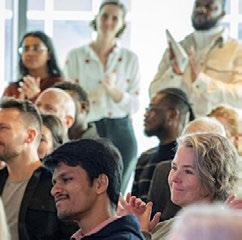
In partnership with Northern Light Health, MaineHealth, and Maine Venture Fund, this yearlong residency gives health tech founders the opportunity to collaborate with Maine’s leading healthcare systems.
Focused on early-stage entrepreneurship, Start Summits turn sparks of ideas into prototypes. The events, which take place around Maine and are open to anyone interested in startups, invite participants to take part in design thinking and pitching workshops, learning from experts how to build a team and develop a startup.
A yearlong startup residency program designed for women, people of color, LGBTQ+, and other historically underrepresented people leading technology ventures that are set to solve the world’s most pressing challenges.
The first-of-its-kind 16-week accelerator, in partnership with Gulf of Maine Research Institute and Gulf of Maine Ventures, focusing on earlystage companies leveraging artificial intelligence in ocean-based solutions.
In September, Northeastern broke ground on a new permanent campus on the Portland waterfront at 1 Beanpot Circle. The state-of-the-art, multi-building complex will serve as a hub for education, research, and entrepreneurship and be home to the university’s Roux Institute and Alfond Center.
The 13.5-acre campus will feature new public green space, waterfront access, and pedestrian and bicycle connections for all to enjoy. The familiar B&M building, now a City of Portland designated Historic Landmark, will remain at the heart of the site. It is expected to open late 2027.
